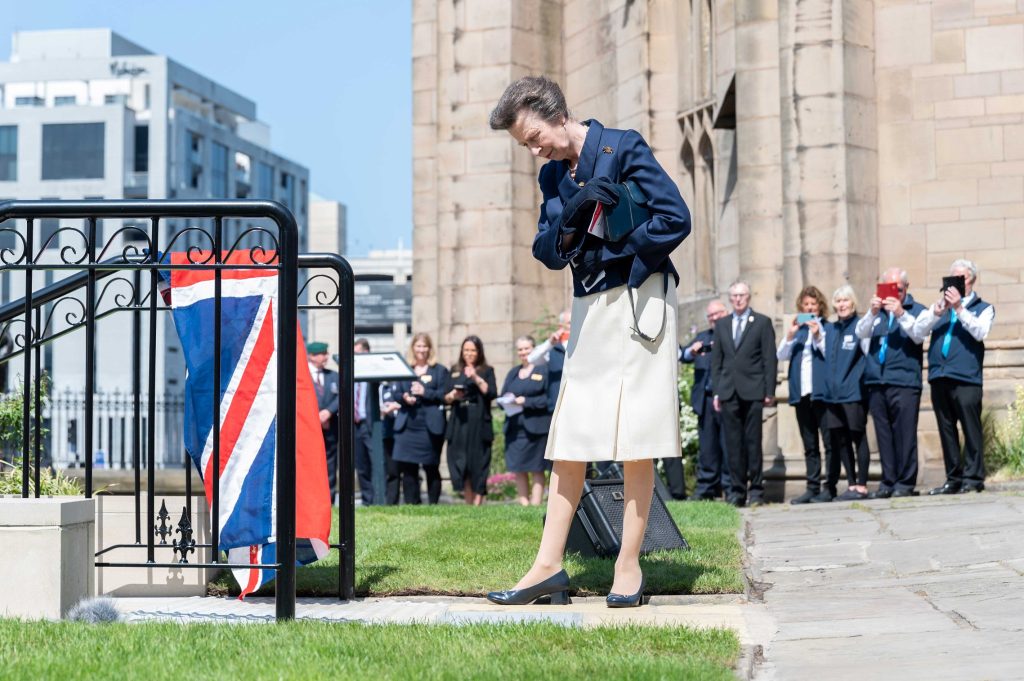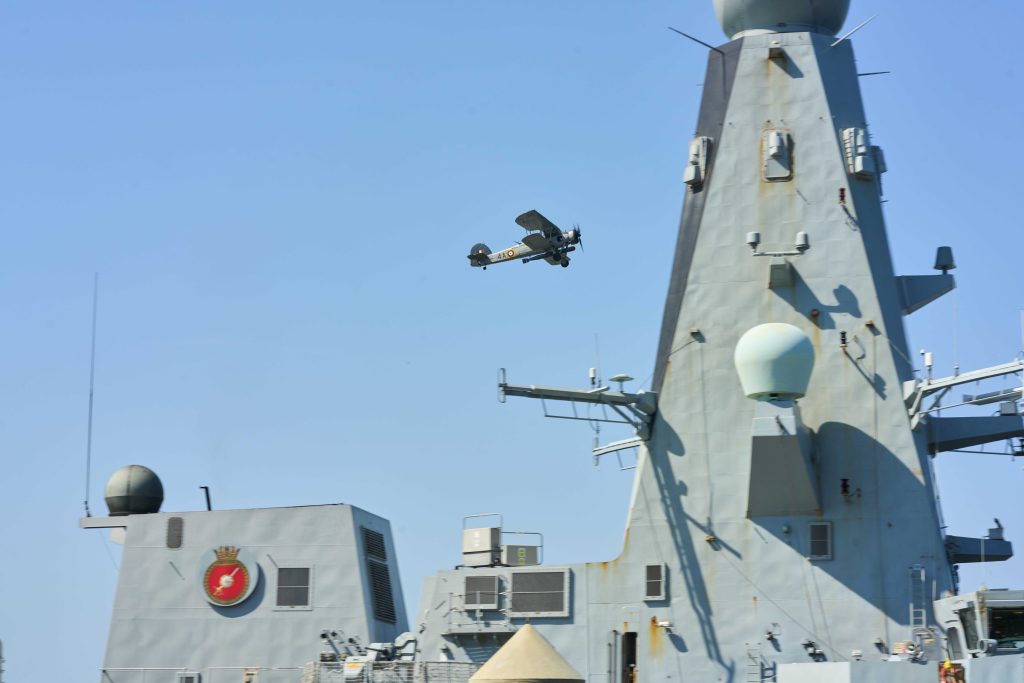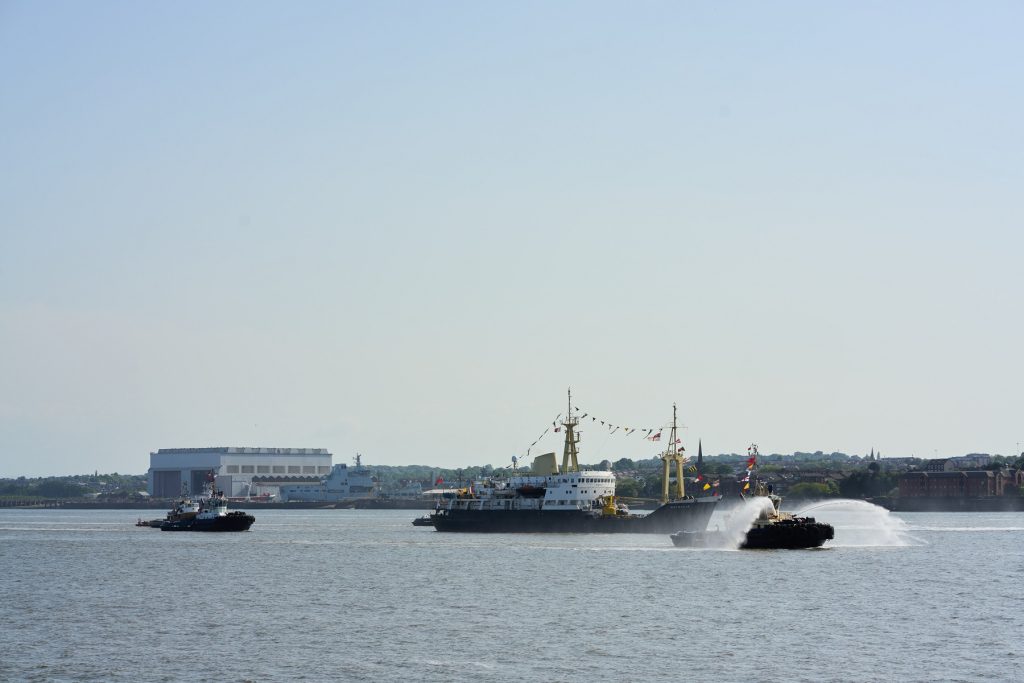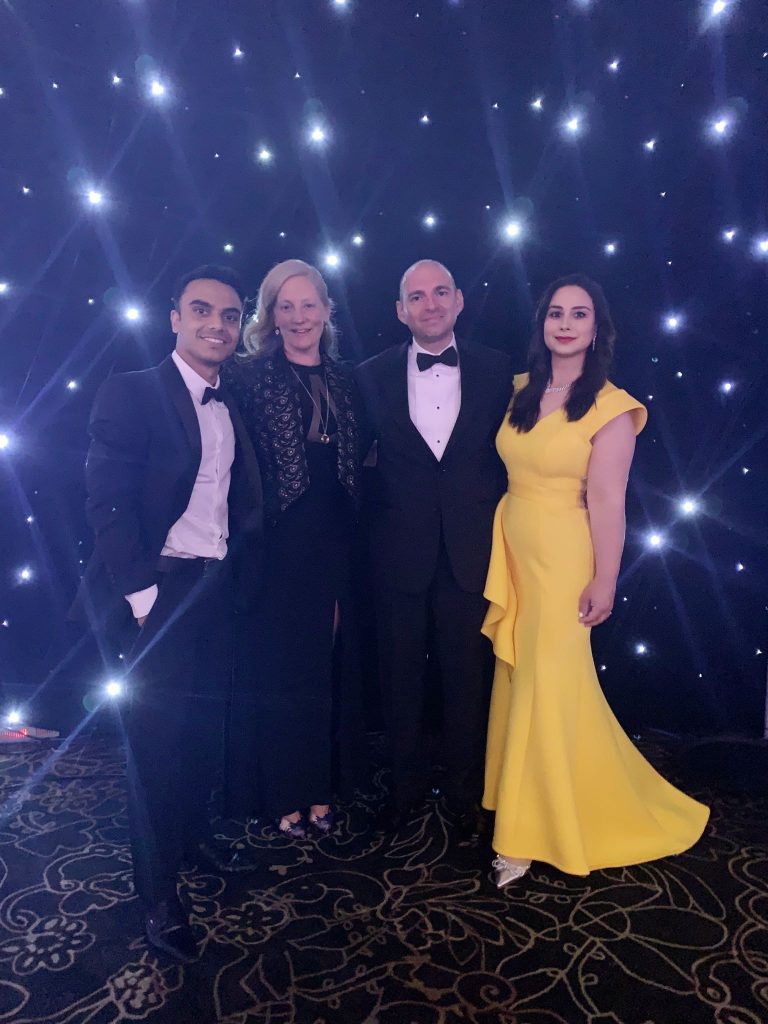
by Steven Jones, founder of Seafarers Happiness Index
As we approach a range of significant anniversaries of landmark events throughout the Second World War, and as our veterans inexorably and sadly hove out of view, we are left with a rather challenging balancing act. We have to plot the right course through remembrance.
How do you commemorate and remember without being overly triumphal and glorious? Looking back on the mercantile without too much focus on the martial. Celebrating the best of people, bravery, sacrifice and heroism with a focus on the good done rather than the evil and brutality of war.
The 80th Anniversary of the Battle of the Atlantic (BoA) has provided an excellent opportunity to do just that. It is an especially important commemoration, one as much about civilians as the military, as much about the might of trade over firepower.

BoA lasted from 1939 to 1945 and was centred around control of the Atlantic trade sea routes, which were vital for the transportation of troops, food, fuel, supplies, and resources between North America and Europe.
The German Navy, particularly its U-boats aimed to disrupt Allied shipping and cut off the flow of supplies to Britain. Winston Churchill, the Prime Minister of the United Kingdom during World War II, famously described the Battle of the Atlantic as the “longest, hardest, and most complex” battle of the war. He recognised the critical importance of the battle in sustaining the Allied war effort and securing victory.
Churchill had a deep appreciation for the sacrifices made by the men and women involved in the battle.
Churchill said, “The Battle of the Atlantic was the dominating factor all through the war. Never for one moment could we forget that everything happening elsewhere, on land, at sea, or in the air, depended ultimately on its outcome… The Battle of the Atlantic was a long, grim, and close struggle. Not until the danger was quelled could we be fully secure. The tribute of the Navy and the nation in this great battle cannot be measured by the ordinary standards of mankind.”
Throughout the battle, both sides suffered heavy losses. However, through the combined efforts of the Allied navies, including technological advancements such as radar and code-breaking, the tide gradually turned. The introduction of long-range aircraft patrols, improved escort tactics developed in part by the genius of young women in the WRENS, and the breaking of the German Enigma code helped to shift the balance and turn the tide against the U-boats.
So it was in May 1943 that Admiral Karl Dönitz conceded that Germany’s U-boat campaign was no longer effective and sustainable, Dönitz made a statement to his U-boat commanders which reflected the changing tide of the battle, in while the battle raged on, it was never again felt that the Allies could be defeated in the Atlantic.

This brings us to May 2023, and the 80th Anniversary, which focused on events in Liverpool. The city had been key to the victory, in both terms of landing cargoes, but so too as home to the Western Approaches Command.
The charity, Battle of the Atlantic Memorial has been raising funds and awareness for a permanent monument to the sacrifices made in the battle. This has now been achieved, and Her Royal Highness The Princess Royal attended an opening ceremony of a garden of remembrance in the Church of St Nicholas, Liverpool.
The marking of the 80th Anniversary of BoA saw a range of events in Liverpool. In the build-up there had been a series of lectures, focusing not just on the past but the role that BoA played in shaping our present and future.
While centred around the May Bank Holiday weekend, there was a ceremony of remembrance, a gala dinner, a military village, naval port calls, fly pasts second world war aircraft, a city march, a concert by the Band of the Royal Marines, a drum head service, and a sail away salute.
While it is a long time ago, Liverpool has not forgotten the exploits, bravery, tenacity and sacrifices. Thousands of visitors, dignitaries, serving military personnel, and merchant seafarers gathered to celebrate and remember, to salute and say thank you.
The city was awash with not just flags and medals, but more than that, there was a recognition of the vital importance of the sea, of trade, and of the seafarers who made everything possible, and who do the same today – though thankfully without having to face the U-boat menace. The national anthem was sung, services were held in revered silence, and people applauded.
Propeller Club Liverpool was at the fore of the events, as not only were members of the current maritime community in attendance, but the events were ably project managed by two of our own, Louise McWatt and Anneley Pickles. A huge BZ to both.

It was an emotionally charged weekend, people often lost in their thoughts of perhaps family members no longer with us, or just the majesty of remembrance and commemoration. Time may dim the links, but does not diminish the gratitude, love, respect and gratitude that so many owe to those who go down to the sea in ships.
There is a legacy from this fantastic event, not just a monument, but a movement. The desire to ensure that the lessons of the past are learned and that the victories of peace not just of war come to the fore.

So, we look not just back to a battle, but to the Atlantic Charter which was the foundation on which our hard-fought global gains were forged. This outlined the goals and principles for the post-war world and served as a foundation for the United Nations. Affirming a commitment to common principles and objectives, including self-determination for nations, economic cooperation, disarmament, and the promotion of freedom, human rights, international security and maritime trade.
The BoA laid the groundwork for the establishment of a more peaceful and just world order after the war, and that is why those who fought are the giants on whose shoulders our world is built.
You can learn more at https://battleoftheatlantic.org/





